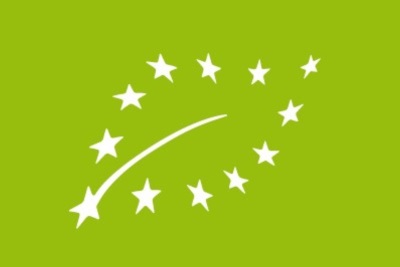Our ambition
We have ambitious plans and that includes increasingly sustainable production. We owe this to ourselves, the consumer and especially nature. We are therefore pleased that more and more attention is being paid to this within the entire sector. Growing healthier and stronger plants through product innovation is the starting point. Every year we try to reduce our pesticide use. We believe that disease-prone plants simply should not be sold to consumers.
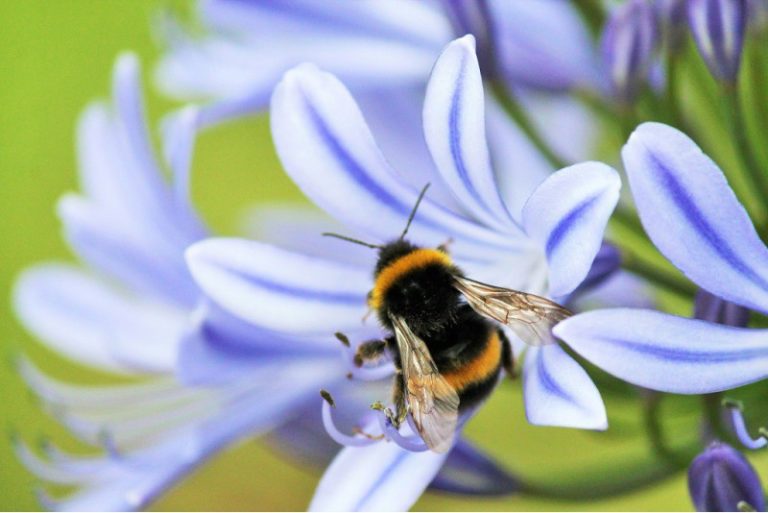
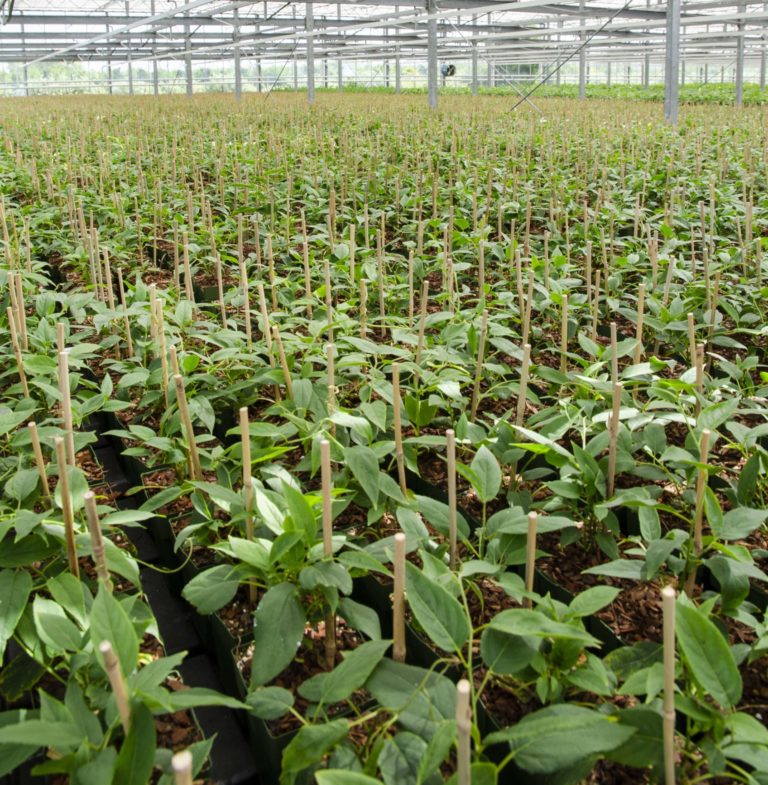
Organic farming
Through years of investment and experiments with biostimulants, tests with biological enemies and research into cultivation strategies, we were the first Dutch grower to take the step towards 100% organically grown fruit plants. From young plant to final product.
By creating flower fields with plenty of different flowers and grasses, we attract natural enemies such as: ladybugs, parasitic wasps and gall midges. This helps us with biological control of, among others, aphids and spider mites. By making the right choice of plant species and growing our plants in a resilient manner, they are less susceptible to disease and pests. Better growth for the consumer is guaranteed, and beside that the consumer does not need to use any chemical products. Millions of biological enemies are released every year, which ensures a natural balance for us at the nursery but also for the consumer.
Peat reduction
Another example of innovative and sustainable cultivation is the peat reduction that has been achieved during the last few years. In 2022 we were able to achieve a peat reduction of up to 50% in the fruit plants, climbing plants, bamboo, grasses and ferns. Here we use local residual products as peat substitutes. Examples of this are scraps from the wood processing factories, dried fractions of cow manure and compost from local green waste.
Depending on the variety, we can already grow a large part of our range 100% peat-free on request. In addition to peat-free cultivation, we are also looking further at other sustainability themes. We are always striving to achieve higher goals when it comes to sustainability. An example of a theme that is currently being experimented with is growing plants without using mineral fertilizers.
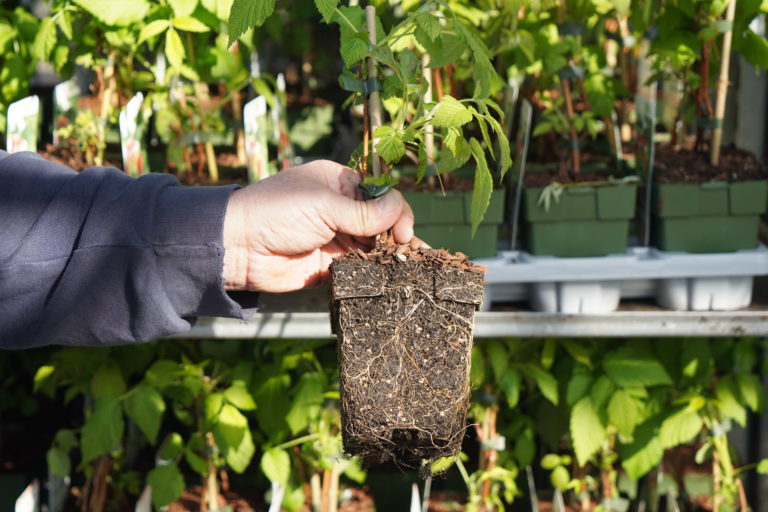
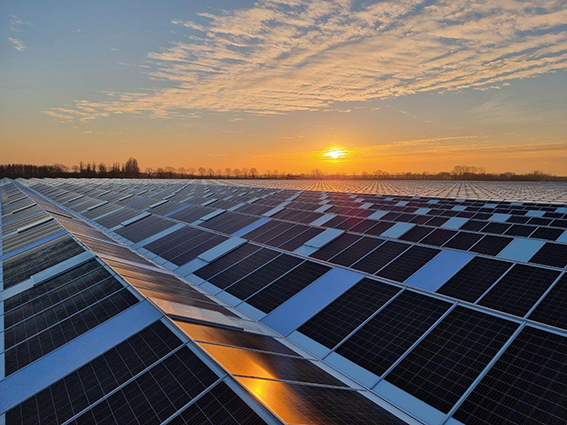
Saving energy
As a grower, we grow outdoors or in a cold greenhouse, by definition we have low energy consumption and if we need energy, we do this with the most sustainable option available. For example, we generate a large part of our electricity ourselves with solar panels. At the newly developed Denemarkenlaan 16 location, we have even integrated 1,350 solar panels into the greenhouse cover of the production areas. We purchase the rest of the electricity sustainably from specialized companies. We also have sustainable solutions in the field of heat. At locations where it is possible, we use residual heat from industry. At locations where this is not possible we have installed heat pumps to heat the business areas. The greenhouse is also heated with heat pumps. It is Hoogeveen Plants’ aim to produce climate neutrally by 2030.
Water use
The rainwater that falls is collected and stored in large basins. We can then use this water for irrigation. In this way we do not use surface – or groundwater. Due to the closed system at the nursery, there is no water wastage and no residues of crop protection products or fertilizers end up in the surface – or groundwater.
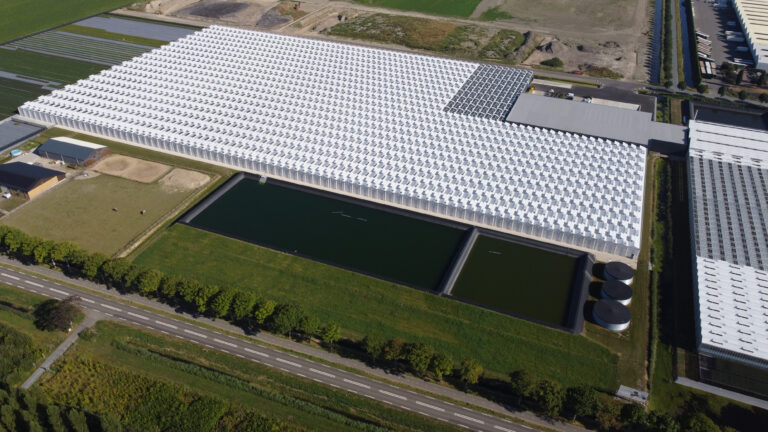
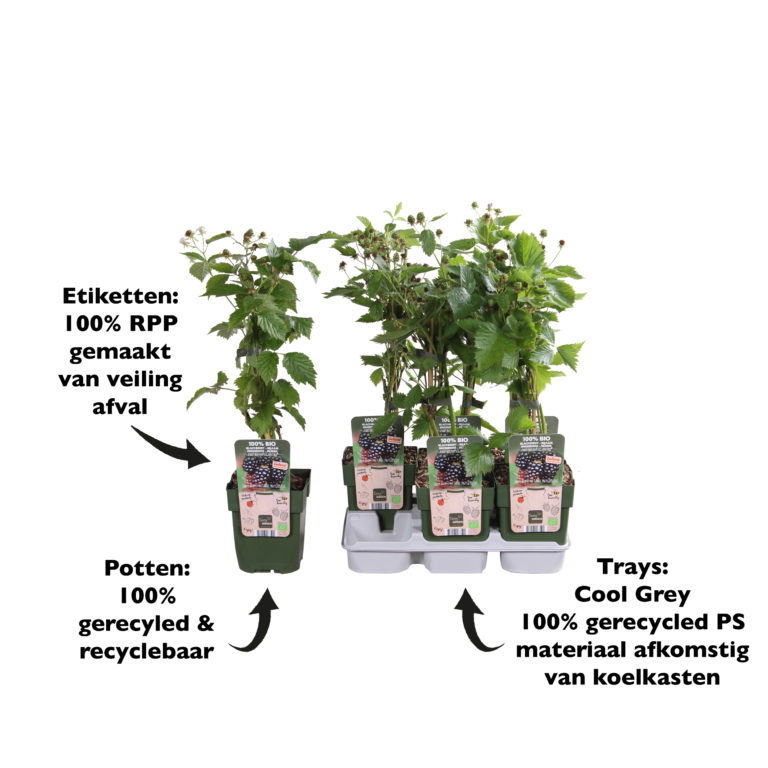
Plastic Recycling
From 2019 Hoogeveen Plants will supply the plants in pots and trays made from 100% recycled plastic. For example, the trays are made of plastic from old refrigerators. The pots are made from collected consumer waste from the Netherlands or Germany and the labels from waste from the auction. As a result, no new plastics end up in the chain. In addition to reducing plastic use, our goal is to only use plastics from recycled materials which can be recycled afterwards. As a result, fewer raw materials are needed and the plastics do not end up in the environment.
Certificates
Hoogeveen Plants holds the SKAL, MPS-A+, MPS-GAP, GLOBAL-GAP and MPS SQ certificates. SKAL Biocontrole is the independent organization for the supervision of the entire organic chain in the Netherlands. Our MPS number is printed on all our products, so that everyone can follow our sustainability status online.
